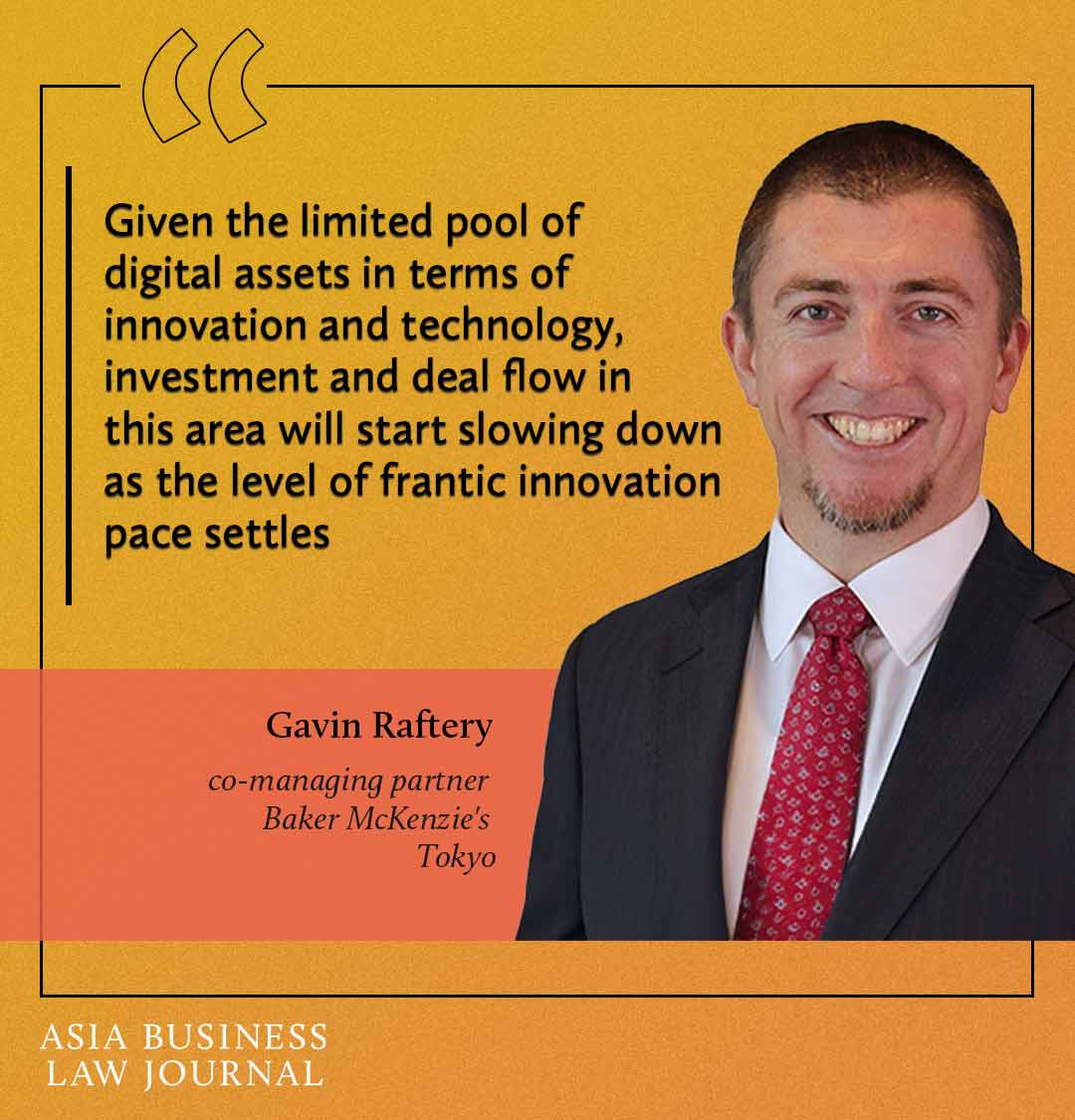Japan has witnessed keen growth in 2023, and the year ahead looks as bright as ever for investors, especially with a stable market, favourable policy conditions, and weaker yen, writes Freny Patel.
J
apan will continue to be a hotbed for investors in 2024. Although investment growth may not be as high as in 2023, there will still be strong demand for mergers and acquisitions, private equity, and real estate, say experts.
Japan has garnered significant investment interest due to its unique set of qualities that differentiate it from other global economies. The distinguishing factors include its stable political system, advanced technological infrastructure, highly skilled workforce, and strong commitment to innovation. These characteristics have made Japan a preferred destination for investors seeking long-term opportunities that offer stability, growth and profitability.
Further, Japan’s strategic location in the Asia-Pacific region provides access to a vast and diverse market, home to some of the world’s fastest-growing economies. The nation thus presents an attractive proposition for investors seeking to diversify their portfolios and tap into the region’s vast potential.
“The two biggest reasons driving investor interest are the weakened yen that is encouraging offshore investors to buy Japanese assets at a significant discount and the marginal cost of debt supported by Bank of Japan’s ultra-low interest rate policy, which can provide positive leveraged yield on all investments,” says Koji Naito, research director, capital markets, Japan at JLL. He adds it is a phenomenon that can be seen only in Japan at this moment.
The weakening yen compared to major currencies like the Euro and the US dollar has made Japanese assets more attractive to foreign investors, Michael Mroczek, president of the European Business Council in Japan and foreign law partner at Nozomi Sogo, agrees.
“Foreigners can invest in Japan with a view that they can get returns not only from the actual business but also from future changes in forex rates,” says Kengo Nishigaki, founder and partner at GI&T Law Office. The Japanese yen is weak against almost all global currencies and currently trading at 144 to the US dollar.
From a legal perspective, Takeshi Iitani, partner at southgate, identifies three government policies that have had a positive impact on investment in Japan. First, the Ministry of Economy, Trade and Industry (METI) has encouraged Japanese companies to carve out M&A transactions to reorganise their business portfolios and to attract investment from foreign investors for innovation and economic growth, he points out.
“The Tokyo Stock Exchange has been urging TSE-listed companies to enhance their capital efficiency and improve ROE [return on equity] or PBR [price to book ratio]. These moves have provided more investment opportunities for foreign investors,” Iitani says.
Lastly, though, Japan like many other countries, has tightened its regulations on inbound investments, “they are much less onerous, in our view, than those of other leading economies, especially CFIUS in the US”, says Iitani.
Jacky Scanlan-Dyas, a Hogan Lovells partner, corporate & finance and regional lead for corporate in Japan, cites Japan Prime Minister Fumio Kishida’s “new capitalism” initiative of June 2023, aimed at establishing a more concrete strategy to increase wages, improve productivity, and improve growth.
The covid-19 pandemic equally had a role to play in boosting Japan’s investment climate, Mroczek points out. “During the pandemic, Japan’s stringent border controls significantly limited foreign business travel, [thereby] indirectly fostering a conducive environment for domestic business consolidation and foreign investment via remote channels,” he explains.
Further, Japan’s stability from a geopolitical perspective means that investors do not have to apply a high discount rate, Nishigaki points out. “Japan’s high ethical and compliant culture also means that investors can safely invest in the country trusting its financial records,” he adds.
The increase in geopolitical risks – in particular, the tension between the US and China, two of the most prominent trading partners – has a significant effect on Japanese companies, says Nishimura & Asahi’s managing partner, Ryutaro Nakayama.

Driving M&A
Many factors drive M&A in Japan. Its persistent low-interest rate environment is one of the key reasons the country stands out and spearheads the M&A market.
Japan is the only major global market that recorded growth in 2023 and this trend is likely to continue into 2024, Scanlan-Dyas reiterates. “We are continuing to see several carve-out transactions as well as corporate restructurings,” she adds.
According to data released by S&P Global Market Intelligence, Japan witnessed 1,425 M&A deals in the first 11 months of 2023 against a worldwide decline given the prevalence of higher interest rates in most other global markets, resulting in “tepid dealmaking”.
Favourable government policies will further boost the growth momentum in 2024, as potential buyers take advantage of the recently revised M&A guidelines. The new rules – announced by the METI in August this year – allow unsolicited takeover bids and aim to prevent credible hostile offers from being turned down without serious consideration.
The new rules aim to prevent some of the “unfair defence strategies” used by Japanese companies to avoid being taken over and to simplify M&A transactions. These rules expedited Nidec Corp’s unsolicited takeover bid for Takisawa Machine Tool Co in November of this year.
Japanese corporate reorganisations, which often also involve sales of non-core or underperforming businesses, are equally on the rise. Faced with rising material costs, a weakening yen, and labour shortages, many Japanese companies are considering selling their non-core assets or even selling themselves.
Anticipating interest from overseas clients to continue into 2024, Nels Hansen, White & Case Tokyo-based partner corporate/M&A practice group says: “The historical challenge remains that many Japanese companies do not generally seek to sell businesses or assets absent a compelling need to do so. We thus expect that the sectors of interest will be ‘any that are willing to sell’ to overseas investors such as our PE sponsor clients, who can offer the opportunity of a future relisting and management equity and expertise, which may be attractive to Japanese strategy [at companies].”
Japan’s aging and declining population has also prompted companies to consider divestments. Various industries may see an increase in M&A transactions due to this demographic shift.
Scanlan-Dyas says: “The divestiture of non-core businesses and deglobalisation generally is an increasing strategy we are seeing amongst Japanese businesses and, interestingly, also a change in how Japanese businesses operate as they are becoming more comfortable with the culture of selling businesses.” Similarly, succession issues have become more acute in smaller businesses and could prompt M&A deals in the need to find a successor or new management.
There is also the China link. With the geopolitical tensions during the past few years, many Japanese companies have recognised that they may need to consider supply chain risks when it comes to dealing with their largest trading partner, China. Japan may also benefit from other companies pivoting away from China – not necessarily building factories in Japan but maybe relying on its factory automation companies to help them build elsewhere, says Scanlan-Dyas.
Flourishing PE
Along with M&A deals, the private equity (PE) market has also flourished in Japan with a significant increase in interest from both local and international private equity firms.
“Over the past decade, we have observed a shift in the attitude of Japanese companies towards private equity,” says Gavin Raftery, co-managing partner at Baker McKenzie’s Tokyo office. Previously there were very few deals as companies were hesitant and cautious of PE funding.

“We anticipate increased inbound investment from PE funds, which are exploring regional opportunities outside of China, particularly given the recent changes in policy regarding foreign investors in combination with low interest rates and a favourable USD/yen exchange rate,” says Charlie Wilson, head of M&A and the private equity group in Asia and co-managing partner of Sidley Austin in Singapore.
Raftery agrees that the flourishing PE market has seen a significant rise in interest from local and international PE funds engaged in business deals in Japan. Many new PE players have entered the market, with several announcing their plans to open an office in Tokyo and invest in the Japanese market.
Such investments are not just one-time transactions in Japanese companies; instead, private equity funds are exploring how the domestic market can generate capital, says Raftery.
“Several major private equity firms have recently expanded their investment strategies in Japan … now [they] include real estate and infrastructure as part of their investment strategy for the first time,” he says, expecting more deals in the infrastructure space.
You must be a
subscribersubscribersubscribersubscriber
to read this content, please
subscribesubscribesubscribesubscribe
today.
For group subscribers, please click here to access.
Interested in group subscription? Please contact us.




























